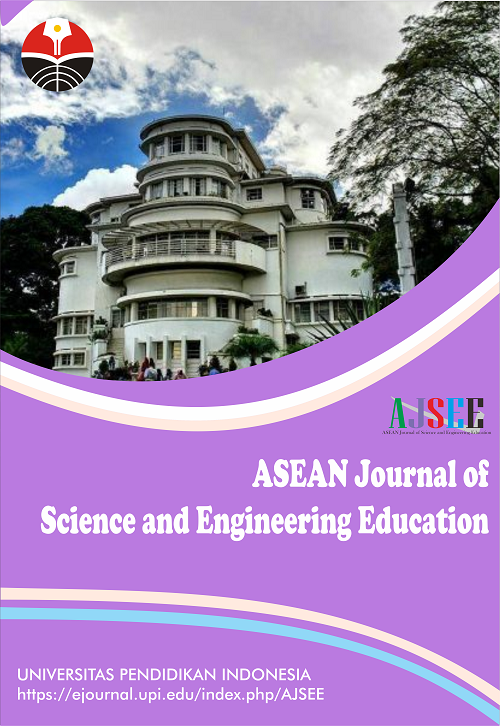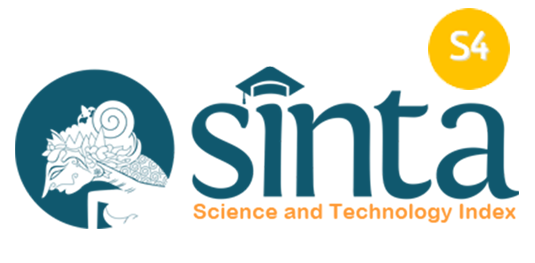Predictors of Polio Immunization Hesitancy: A Cross-Sectional Study from Mardan Pakistan
Abstract
Keywords
Full Text:
PDFReferences
Abimbola, S., Malik, A. U. and Mansoor, G. F. (2013). The final push for polio eradication: Addressing the challenge of violence in Afghanistan, Pakistan, and Nigeria. PLoS medicine, 10(10), e1001529.
Afzal, M. S., Khan, A., Qureshi, U. U. R., Saleem, S., Saqib, M. A. N., Shabbir, R. M. K., Naveed, M., Jabbar, M., Zahoor, S. and Ahmed, H. (2021). Community-based assessment of knowledge, attitude, practices and risk factors regarding covid-19 among pakistanis residents during a recent outbreak: A cross-sectional survey. Journal of Community Health, 46(3), 476–486.
Ahmad, N., Akhtar, T., Roghani, M. T., Ilyas, H. M. and Ahmad, M. (1999). Immunization coverage in three districts of North West Frontier Province (NWFP). Journal-Pakistan Medical Association, 49(12), 301-304.
Alexander, J. P., Zubair, M., Khan, M., Abid, N. and Durry, E. (2014). Progress and peril: Poliomyelitis eradication efforts in Pakistan, 1994–2013. The Journal of infectious diseases, 210(1), S152-S161.
Ali, M., Ahmad, N., Khan, H., Ali, S., Akbar, F. and Hussain, Z. (2019). Polio vaccination controversy in Pakistan. The Lancet, 394(10202), 915–916.
Anwar, S., Sharf, B., Usman, M., Panday, D. and Asif, M. (2020). Organic diet as silent pretreatment strategy to boost immune system against SARS-CoV-2. Alq J Med App Sci, 3(2), 10-25.
Asif, M. (2020). Coronavirus (COVID-19) Symptoms, Treatment and Recent Medical Challenges to the World: A Review. Journal of Preventive Medicine, 5, 20.
Azira, B., Norhayati, M. N. and Norwati, D. (2013). Knowledge, attitude and adherence to cold chain among general practitioners in Kelantan, Malaysia. International Journal of Collaborative Research on Internal Medicine & Public Health, 5(3), 157-167.
Chandir, S., Siddiqi, D. A., Mehmood, M., Setayesh, H., Siddique, M., Mirza, A., Soundardjee, R., Kumar Dharma, V., Shah, T., Abdullah, S., Akhter, M. A., Khan, A. A. and Javed Khan, A. (2020). Impact of COVID-19 pandemic response on uptake of routine immunizations in Sindh, Pakistan: An analysis of provincial electronic immunization registry data. Vaccine, 38, 7146–7155.
Fetene, N. W. and Sherani, A. (2013). Determinant factors for implementing polio eradication activities under security compromised settings of Pakistan. J Trop Dis, 2(127), 2.
Ghinai, I., Willott, C., Dadari, I. and Larson, H. J. (2013). Listening to the rumours: what the northern Nigeria polio vaccine boycott can tell us ten years on. Global public health, 8(10), 1138-1150.
Hillman, A. and Latimer, J. (2017). Cultural representations of dementia. PLoS Medicine, 14(3), e1002274.
Hussain, T., Tauseef, A., Bari, A., Rasheed, U. and Hassan, J. A. (2014). Awareness among general population attending Civil Hospital Karachi about risk factors associated with infertility. JPMA. The Journal of the Pakistan Medical Association, 64(6), 725-730.
Khowaja, A. R., Khan, S. A., Nizam, N., Omer, S. B. and Zaidi, A. (2012). Parental perceptions surrounding polio and self-reported non-participation in polio supplementary immunization activities in Karachi, Pakistan: A mixed methods study. Bulletin of the World Health Organization, 90, 822-830.
Larson, H. J. and Ghinai, I. (2011). Lessons from polio eradication. Nature, 473(7348), 446-447.
Mangrio, N. K., Alam, M. M. and Shaikh, B. T. (2008). Is Expanded Programme on Immunization doing enough? Viewpoint of health workers and managers in Sindh, Pakistan. JPMA. The Journal of the Pakistan Medical Association, 58(2), 64.
Mushtaq, M. U., Majrooh, M. A., Ullah, M. Z. S., Akram, J., Siddiqui, A. M., Shad, M. A., Waqas, M., Abdullah, H. M., Ahmad, W., Shahid, U. and Khurshid, U. (2010). Are we doing enough? Evaluation of the Polio Eradication Initiative in a district of Pakistan’s Punjab province: A lot quality assurance sampling study. BMC Public Health, 10, 1–10.
Naeem, M., Adil, M., Abbas, S. H., Khan, A., Khan, M. U. and Naz, S. M. (2012). Coverage and causes of non-immunization in national immunization days for polio; A consumer and provider perspective study in Peshawar. Journal of Postgraduate Medical Institute (Peshawar-Pakistan), 26(1), 48-54.
Nisar, Y. B. and Dibley, M. J. (2014). Determinants of neonatal mortality in Pakistan: secondary analysis of Pakistan Demographic and Health Survey 2006–07. BMC Public Health, 14(1), 1-12.
Obregón, R., Chitnis, K., Morry, C., Feek, W., Bates, J., Galway, M. and Ogden, E. (2009). Achieving polio eradication: a review of health communication evidence and lessons learned in India and Pakistan. Bulletin of the World Health Organization, 87, 624-630.
Orr, D., Baram-Tsabari, A. and Landsman, K. (2016). Social media as a platform for health-related public debates and discussions: The Polio vaccine on Facebook. Israel Journal of Health Policy Research, 5(1), 1-11.
Owais, A., Hanif, B., Siddiqui, A. R., Agha, A. and Zaidi, A. K. (2011). Does improving maternal knowledge of vaccines impact infant immunization rates; A community-based randomized-controlled trial in Karachi, Pakistan. BMC Public Health, 11, 1–8.
Sanders, B. P., de los Rios Oakes, I., van Hoek, V., Bockstal, V., Kamphuis, T., Uil, T. G. and Edo-Matas, D. (2016). Cold-adapted viral attenuation (CAVA): Highly temperature sensitive polioviruses as novel vaccine strains for a next generation inactivated poliovirus vaccine. PLoS Pathogens, 12(3), e1005483.
Shrivastava, A., Gupta, N., Upadhyay, P. and Puliyel, J. (2012). Caution needed in using oral polio vaccine beyond the cold chain: Vaccine vial monitors may be unreliable at high temperatures. The Indian Journal of Medical Research, 135(4), 520.
Sisk, B. A., Mozersky, J., Antes, A. L. and DuBois, J. M. (2020). The “Ought-Is” problem: An implementation science framework for translating ethical norms into practice. American Journal of Bioethics, 20(4), 62–70.
Suresh, S., Forgie, S. and Robinson, J. (2018). Non‐polio Enterovirus detection with acute flaccid paralysis: A systematic review. Journal of Medical Virology, 90(1), 3-7.
Vandenbroucke, J. P., Von Elm, E., Altman, D. G., Gøtzsche, P. C., Mulrow, C. D., Pocock, S. J., Poole, C., Schlesselman, J. J. and Egger, M. (2007). Strengthening the reporting of observational studies in epidemiology (STROBE): Explanation and elaboration. PLoS Medicine, 4(10), 1628–1654.
Yakum, M. N., Ateudjieu, J., Walter, E. A. and Watcho, P. (2015). Vaccine storage and cold chain monitoring in the North West region of Cameroon: A cross sectional study. BMC Research Notes, 8(1), 1-7.
DOI: https://doi.org/10.17509/ajsee.v1i3.38771
Refbacks
- There are currently no refbacks.
Copyright (c) 1970 Universitas Pendidikan Indonesia

This work is licensed under a Creative Commons Attribution-ShareAlike 4.0 International License.














